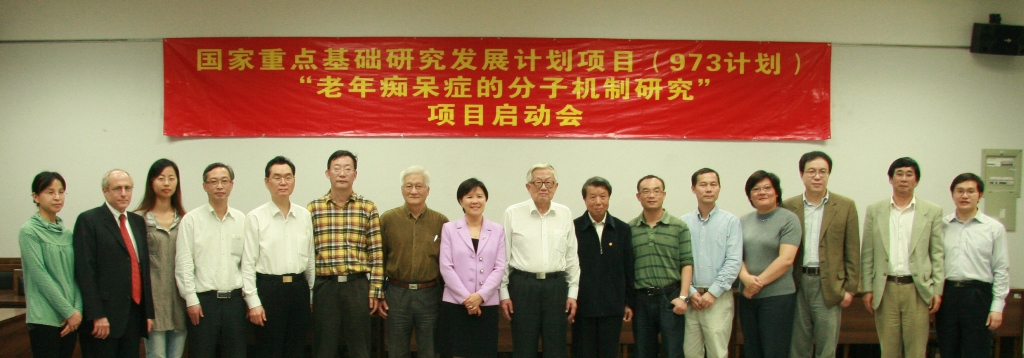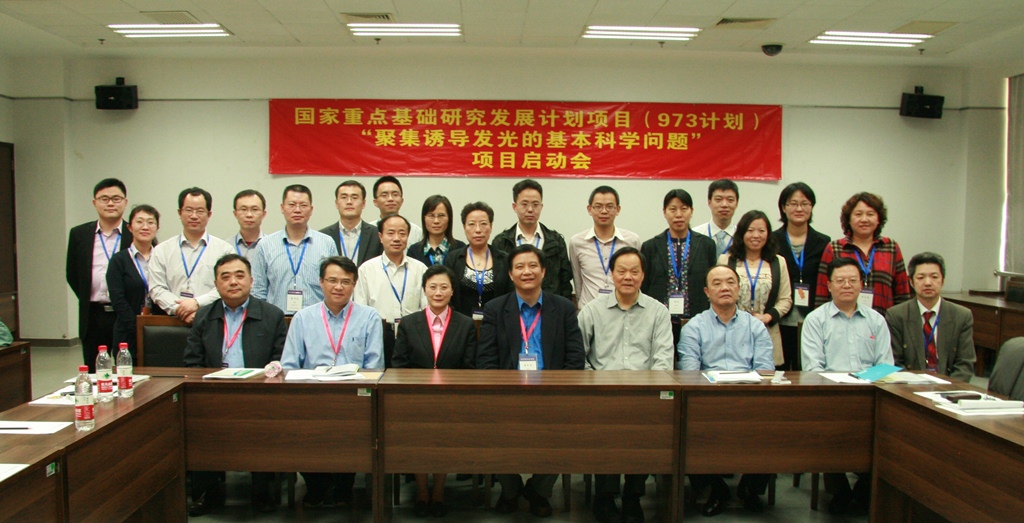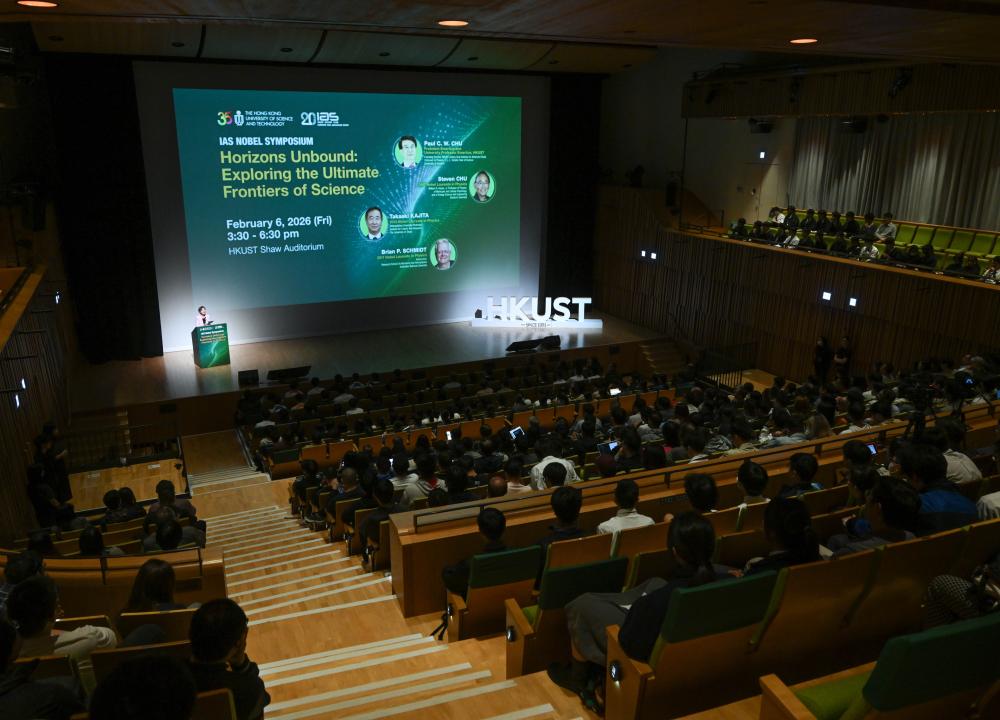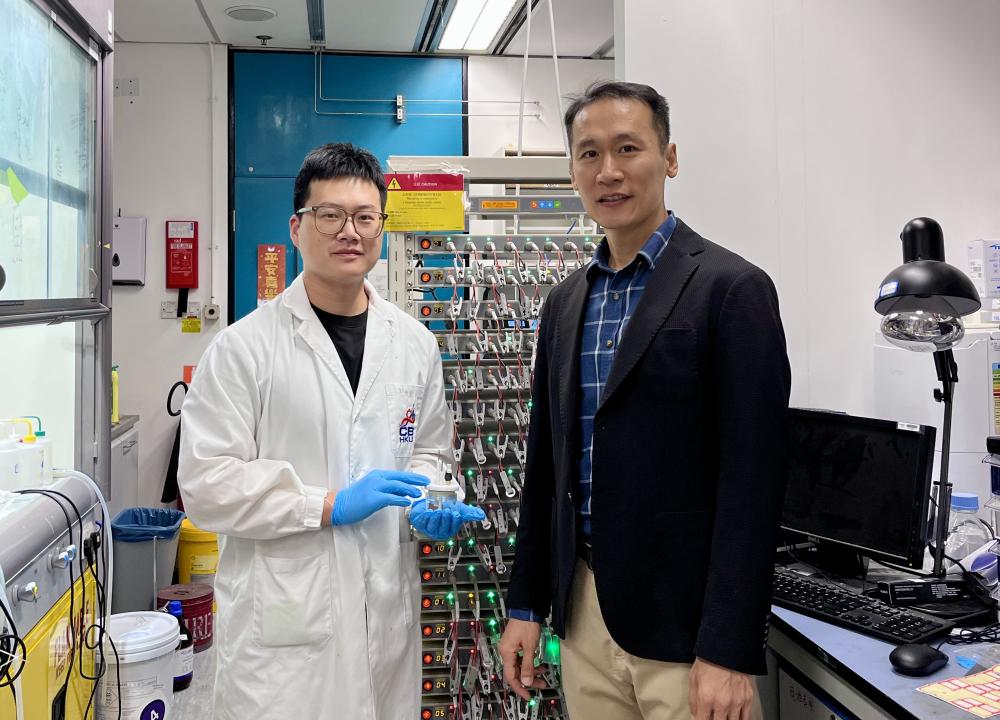HKUST Research Teams Led by Prof Nancy Ip and Prof Benzhong Tang Awarded Major 973 Program Grants
Two research projects led by Prof Nancy Ip, Dean of Science, Director of State Key Laboratory of Molecular Neuroscience, The Morningside Professor of Life Science, and Prof Benzhong Tang, Stephen Kam Chuen Cheong Professor of Science at the Hong Kong University of Science and Technology (HKUST) have been incorporated into the National Basic Research Program, better known as 973 Program, and awarded grants of over RMB 30 million respectively.
Animated by the strong national support given to HKUST research projects, President Prof Tony F Chan said, "HKUST has been achieving significant breakthroughs in research and innovation. As a core part of our strategic plan to strengthen our mainland presence, the University is proactive in driving collaborations with Mainland-based key research, academic institutes and enterprises. With their respective focuses on neurological development and disease mechanisms, polymer chemistry and advanced functional materials, Prof Ip and Prof Tang's research discoveries are concrete examples of first-rate international scholarship. The endorsement of 973 Program should give strong impetus for even greater research breakthroughs and amplify their coverage and influences. We are grateful for the recognition from the Ministry of Science and Technology through the 973 Program. Our research outcomes should play a major part in advancing the country's science and technology development."
The following summarizes the HKUST projects awarded for 973 Program:
"Elucidating the Molecular Mechanisms Underlying the Pathogenesis of Alzheimer's Disease"
By Prof Nancy Ip, Dean of Science, Director of State Key Laboratory of Molecular Neuroscience and The Morningside Professor of Life Science
The research team aims to discover new signaling mechanisms underlying synapse development and plasticity, which are mediated by various families of proteins such as cell surface receptors, cell adhesion molecules, and synaptic scaffold proteins, and investigate whether abnormalities in these signaling pathways contribute to Alzheimer's disease. The team will also elucidate the molecular basis of neurodegeneration in Alzheimer's disease by identifying protein kinase substrates that are deregulated upon disease progression. Further, with the application of genomics and proteomics, the team also aims to identify new biomarkers and molecular targets using clinical samples from Alzheimer's disease patients. The research undertaken in this collaborative effort will advance our knowledge of Alzheimer's disease and facilitate the development of better diagnostic tools while providing novel insights for developing effective therapies for Alzheimer's disease.
The team is composed of experts from the HKUST Shenzhen Research Institute, PolyU Shenzhen Research Institute, Zhejiang University, Fudan University Huashan Hospital, Hangzhou Normal University and Jinan University.
"Basic Scientific Problems of Aggregation-induced Emission"
By Prof Ben Zhong Tang, Stephen Kam Chuen Cheong Professor of Science
The research group will focus on the design and synthesis of new organic and organometallic molecules with aggregation-induced emission (AIE) characteristics. Through molecular engineering, they will reconstruct traditional molecules with aggregation-caused quenching (ACQ) features and impart them with AIE properties. Meanwhile, AIE-active macromolecules with multiple dimensionality and functionality will be produced. Utilizing modern characterization technique and based on experimental investigation as well as combination from the theoretical calculation, the relationship and synergy interplay between the electronic state, molecular structure, aggregation morphology and luminescence property are developed. New AIE theories will be developed and the high-technological applications of AIE materials in chemosensors, bioprobes and optoelectronic devices will be explored. Through the implementation of this project, the research group aims to decipher the chemical and physical mechanisms of the AIE phenomenon, establish the general design principle for AIE molecules, explore the fundamentals of molecular imaging and electronic transition process and develop advanced materials and their prototype devices. The success in this project will promote technological innovations in sensing and optoelectronic systems and meet the strategic needs of China in the areas of specialty materials, biomedical research, environmental protection, as well as national security etc.
The research team consists of partners from HKUST Shenzhen Research Institute, Institute of Chemistry, Chinese Academy of Sciences (CAS), Technical Institute of Physics and Chemistry, CAS, Beijing Institute of Technology, Wuhan University, Zhejiang University, Jilin University and South China University of Technology.
National Basic Research Program (973 Program)
Conceived by the Chinese government in 1997 and later put in force by the Ministry of Science and Technology, the National Basic Research Program, also known as 973 Program aims at fostering basic research and addressing in greater depth and breadth key science and technology issues concerning the country's socioeconomic development. The Program advocates and funds multi-disciplinary research surrounding areas of agriculture, energy, information, resources and environment, population and health, materials and other queries bearing strategically on the country's economic, societal and technological concerns, with an aim to providing theoretical foundation for developing solutions.













